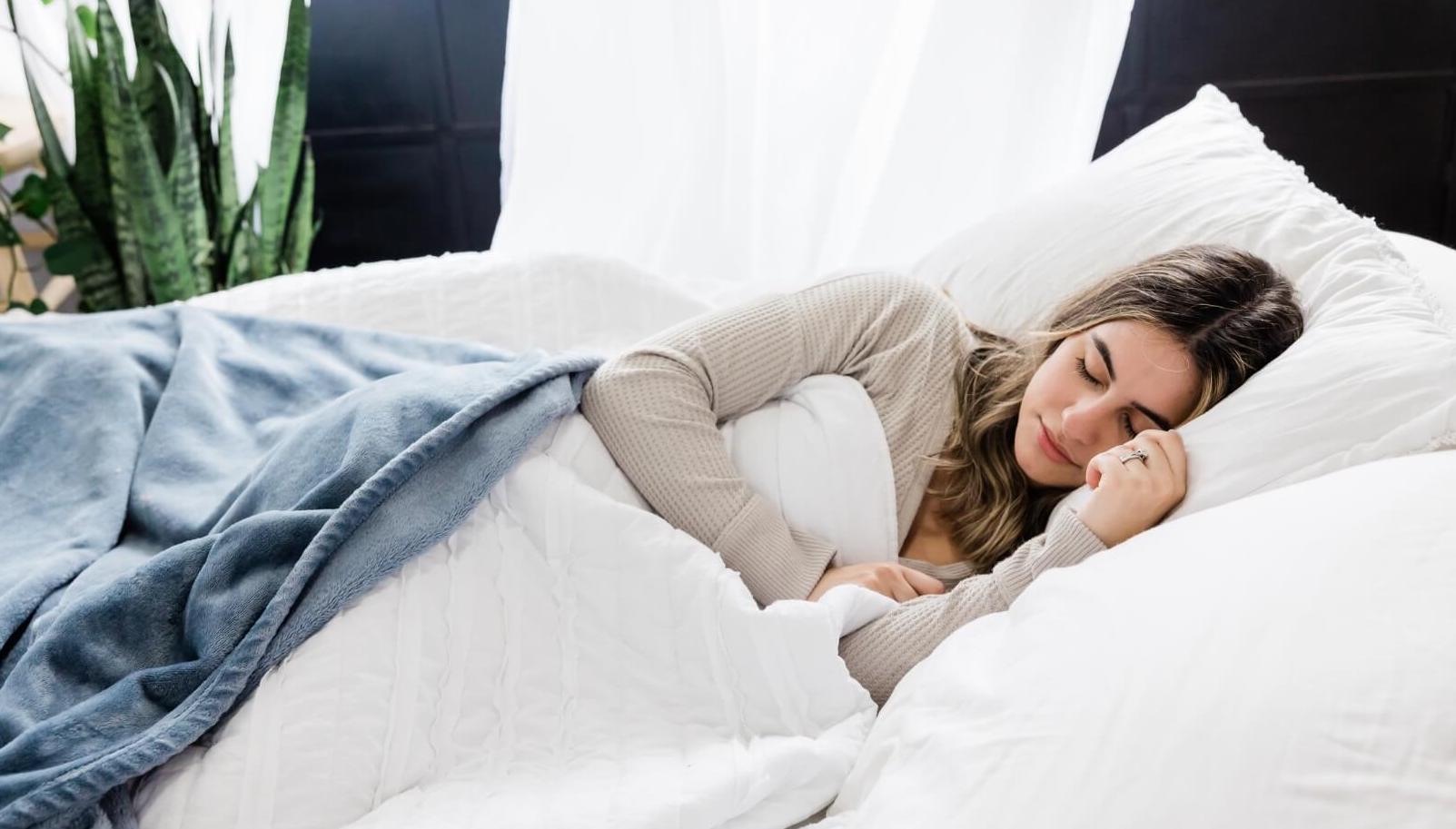
In today’s fast-paced world, the search for better sleep is more crucial than ever. As your go-to wellness content provider, Wic Wellness believes that a well-rested mind is the cornerstone of a healthy life. Today, let’s explore how mindfulness techniques can not only calm your anxious mind but also guide you towards the path of quality sleep.
The Inextricable Link Between Mindfulness and Better Sleep
Before we dive deep, it’s important to understand the relationship between mindfulness and sleep. Mindfulness helps you be present and engage your senses, making you aware of your thoughts and feelings. Such self-awareness often leads to better sleep, as it helps you manage stress, anxiety, and other sleep thieves.
“To enjoy the glow of good health, you must exercise.” – Gene Tunney
If you’ve read our article on how to reset your sleep, you already know that a balanced sleep cycle is crucial for optimal wellness. And mindfulness? Well, it adds another layer of depth to achieving not just sleep, but better sleep.
Mindfulness Techniques for Better Sleep: Where to Begin?
Just like the journey of a thousand miles starts with a single step, the path to better sleep starts with a basic understanding of mindfulness techniques. If you’re new to mindfulness meditation, our Mindfulness Meditation for Beginners guide can be your first step.
Deep Breathing for Better Sleep
- Find a Comfortable Position: Sit or lie down in a comfortable position.
- Inhale Deeply: Take a deep breath through your nose, counting to four.
- Hold the Breath: Hold it in for seven seconds.
- Exhale Slowly: Exhale through your mouth for eight seconds.
Repeat this exercise at least four times, or until you start feeling calmer.
Progressive Muscle Relaxation
After you’ve calmed your breath, focus on your body. Start from your toes and work your way up to your head. Tense each muscle group as you inhale, and relax it as you exhale. The goal is to become aware of physical sensations, a practice that brings you closer to better sleep.
A Mindfulness Toolkit for Better Sleep
While deep breathing and progressive muscle relaxation are excellent starting points, they are only pieces of a larger mindfulness toolkit aimed at better sleep. Here are some more tools you might consider:
- Guided Imagery: Envision a serene place and focus on the details. Imagine the sunlight, the texture of objects, and even the smell.
- Body Scans: Mentally scan your body from head to toe, focusing on areas of tension and consciously relaxing them.
- Mindful Eating: Yes, what you eat impacts how you sleep. Eating mindfully ensures that your last meal of the day aids, rather than hinders, your quest for great sleep.
If you struggle with anxiety, our detailed guide on Mindfulness Techniques for Anxiety can be particularly helpful. After all, it’s difficult to talk about sleep without addressing the anxiety that often keeps us awake.
The Mental Health Benefits: More Than Just Better Sleep
Mindfulness not only helps with sleep but also comes with a myriad of mental health benefits. From stress reduction to improved focus, the benefits are far-reaching. And if stress is the enemy of quality sleep, then our guide on Mindfulness Exercises for Stress Reduction might just be your new best friend.
Wic
Join our Newsletter Family Today & Receive a FREE WELLNESS STARTER PACK!
Wic
The Science Behind Mindfulness and Better Sleep
Let’s dig into the science a bit, shall we? We’ve all heard about REM (Rapid Eye Movement) and deep sleep stages, but how exactly does mindfulness influence these critical aspects of our sleep architecture? Research has found that mindfulness practices, such as deep breathing and guided imagery, can actually extend the duration of deep sleep, that crucial phase where our body repairs and regenerates tissue. This not only makes your sleep more effective but enhances the quality of your rest.
“Sleep is the golden chain that ties health and our bodies together.” – Thomas Dekker
The Neurological Aspect: Rewiring Your Brain for Better Sleep
Mindfulness alters the way your brain functions. It boosts the production of melatonin, the sleep hormone, which is a key player in regulating sleep. Not only that, but mindfulness also helps reduce activity in the “default mode network” of your brain, where mind-wandering and self-referential thoughts occur. In simple terms, practicing mindfulness techniques quiets the chatter in your mind, facilitating better sleep.
Mindfulness and Hormonal Balance
Stress activates the production of cortisol, a hormone that disrupts sleep. Mindfulness practices have shown to reduce cortisol levels, naturally leading to improved sleep quality. The link between stress and sleep quality is often underestimated, but our Mindfulness Exercises for Stress Reduction can guide you through techniques to balance your cortisol levels and help you achieve better sleep.
Mindfulness and Better Sleep: A Week-Long Experiment
If you’re still skeptical about whether mindfulness can help you achieve great sleep, why not try a week-long experiment? Dedicate just 10 minutes a day, right before bedtime, to practice mindfulness, and observe any changes in your sleep quality.
Day 1-3: Basic Mindfulness Meditation
Begin with 10 minutes of basic mindfulness meditation as explained in our Mindfulness Meditation for Beginners guide. Focus on your breath and let go of the day’s worries.
Day 4-6: Body Scans and Guided Imagery
Incorporate body scans and guided imagery into your routine. These techniques not only help in achieving better sleep but are also effective for stress management.
Day 7: Personalize Your Mindfulness Routine
By the end of the week, you’ll have a better understanding of what mindfulness techniques work best for you. Personalize your pre-sleep routine by picking your favorite practices from the week.
Advanced Mindfulness Techniques for Better Sleep
After you’ve gotten the hang of basic techniques, you might want to explore more advanced mindfulness methods for even better sleep:
- Loving-kindness Meditation: Sending out feelings of love and goodwill can not only make you feel better but also help you sleep better.
- Mindful Journaling: Put your thoughts on paper. It’s an excellent way to cap off your day and prepare your mind for sleep.
Your Surroundings Matter: Mindful Environment for Better Sleep
It’s not just the mental and emotional aspects that contribute to sleep; your physical surroundings play a role too. A clutter-free, calming bedroom environment can enhance your mindfulness practices. Try incorporating essential oils like lavender or use a white noise machine to create a serene ambiance conducive to sleep.
Frequently Asked Questions About Mindfulness and Better Sleep
By now, you’re probably convinced of the symbiotic relationship between mindfulness and great sleep. But you may still have lingering questions. Let’s address some of the most common queries people have about incorporating mindfulness into their sleep routine.
“The best bridge between despair and hope is a good night’s sleep.” – E. Joseph Cossman
Can I Practice Mindfulness if I Have Chronic Sleep Issues?
Absolutely! In fact, if you’ve been experiencing chronic sleep issues, mindfulness can be an invaluable tool for you. Whether it’s insomnia, sleep apnea, or restless leg syndrome, mindfulness techniques can reduce the stress and anxiety associated with these conditions. While it may not replace medical treatment, it’s a supplement that can significantly improve the quality of your sleep.
Does Mindfulness Replace the Need for Sleep Aids or Medication?
It’s essential to consult your healthcare provider for personalized medical advice. However, mindfulness can be an excellent complementary approach to conventional treatments for better sleep. A holistic approach often provides the best outcomes, so it’s beneficial to explore how mindfulness can work alongside other treatments to help you achieve better sleep.
How Long Does It Take to See Results?
The answer varies from person to person. However, most people report noticeable improvements in sleep quality within two weeks of consistent mindfulness practice. If you’re interested in the scientific metrics of better sleep, devices that track sleep patterns can offer insights into how mindfulness is affecting your sleep stages, quality, and duration.
Integrating Mindfulness into Your Everyday Life for Better Sleep
As you work on incorporating mindfulness techniques into your evening routine, remember that mindfulness isn’t restricted to the time before sleep. Its principles can be integrated throughout your day to manage stress and improve your overall well-being, contributing to better sleep in the long run.
If you’re struggling with stress during your daytime hours, our guide on Mindfulness Exercises for Stress Reduction offers practical tips to navigate through it. And if anxiety is affecting your sleep quality, our resources on Mindfulness Techniques for Anxiety can be a lifesaver.
Final Thoughts: A Mindful Tomorrow Starts with Better Sleep Tonight
As we conclude this comprehensive guide, let’s emphasize that the pursuit of better sleep is a marathon, not a sprint. Mindfulness is a lifestyle choice, one that you’ll continue to refine over time. And as you make strides in your mindfulness journey, better sleep will naturally follow.
“Your future depends on your dreams, so go to sleep.” – Mesut Barazany
Don’t underestimate the power of a well-rested mind and body. The positive impacts of great sleep transcend into various facets of your life, including your mental health. For those particularly interested in exploring this further, delve into our article on the Mental Health Benefits of Mindfulness.
The road to great sleep through mindfulness is not a lonesome one; we’re here to guide you through every twist and turn. As your go-to source for wellness content, Wic Wellness is committed to equipping you with the tools you need for a balanced life. Remember, the night is still young, and your best sleep is yet to come. Thank you for letting us be a part of your journey towards better sleep and a better life.
For more information about the Power of Rest check out our blog: The Power of Rest: Nurturing Your Wellbeing as a Woman
